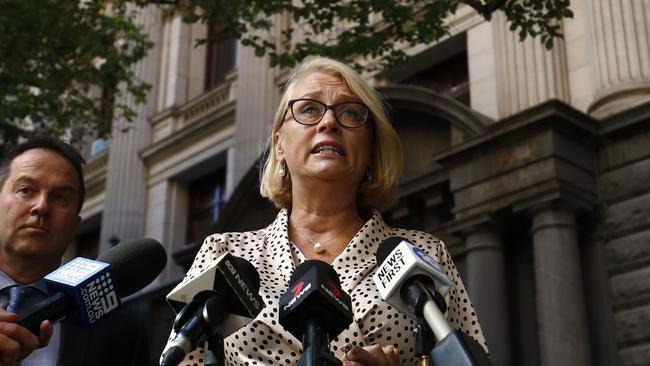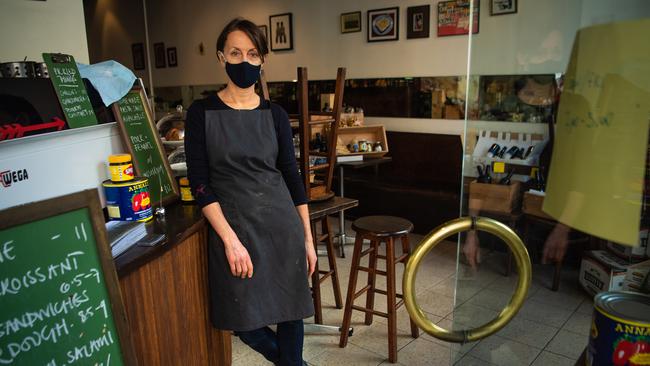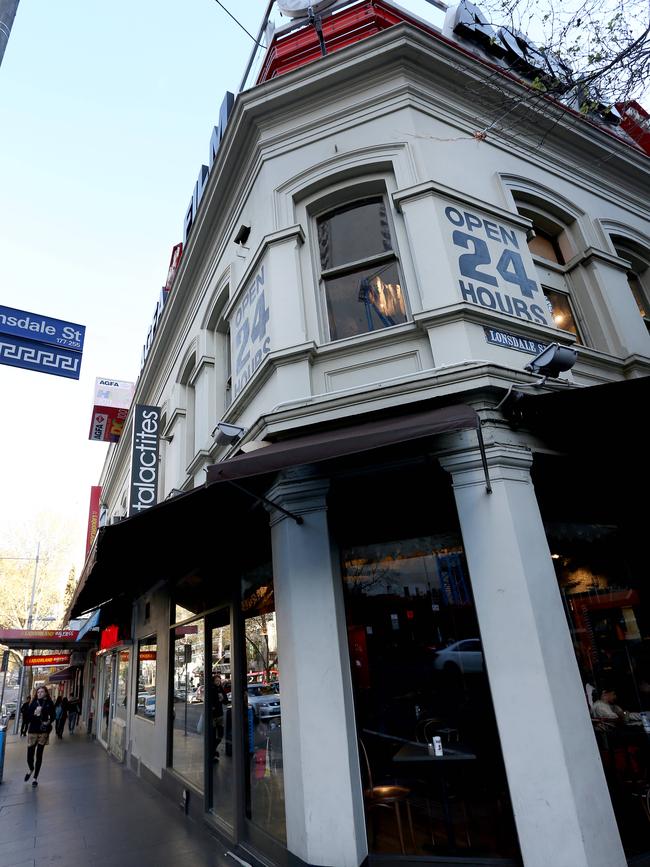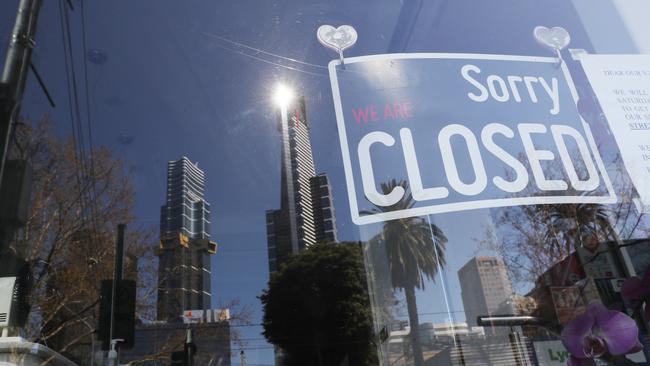Central Melbourne facing $110 billion blow to economy – retail and hospitality hardest hit
The shocking financial toll of the pandemic on Melbourne’s city will be felt for the next five years, with an alarming new report revealing just how dire the economic fallout will be.
HS Coronavirus News
Don't miss out on the headlines from HS Coronavirus News. Followed categories will be added to My News.
Central Melbourne is staring down the barrel of a $110 billion hit from the economic fallout from the coronavirus.
A PwC report has revealed the shocking scale of the financial toll on the city that will be felt for at least five years.
A $23 billion whack is expected to the city’s economic output in this year alone.
It’s also forecast there would be 79,000 fewer jobs in inner Melbourne – an area that has become the state’s economic engine.
The city centre is a virtual ghost town as almost 1 million workers, shoppers, diners and tourists stay away every day.
Lord Mayor Sally Capp said inner Melbourne’s economy was booming before COVID-19, peaking at $104 billion last year, or 24 per cent of Victoria’s economic output.
“Melbourne was the economic powerhouse of Australia. The scale of the economic shock being felt across the central city is unprecedented,’’ Cr Capp said.

The PwC modelling has considered the Stage 4 restrictions and predicts a slow five-year economic recovery.
Retail, accommodation, tourism, hospitality and education are the hardest hit sectors.
The fightback will be slow because of the high demands under Premier Daniel Andrews’ road map to ease restrictions for retail and dining after October 26 only if there is an average of fewer than five cases statewide for the previous 14 days. On Wednesday, NSW and Queensland, which are both largely open, recorded nine and eight cases respectively.
And it comes as the Victorian Chamber of Commerce and Industry wrote to state and federal government calling for more measures to help struggling businesses.
They included an extension of JobKeeper, an extension of Business Support Fund grants, the removal of payroll tax for the remainder of the year for some businesses and a $1000 electricity rebate for small businesses.
The PwC city report also found that COVID-19 ha delivered a $2 billion punch to the food and accommodation industry, coupled with 22,924 fewer jobs. The staff losses represent a 42 per cent reduction, compared to 30 per cent for all of Victoria.
Kathryn Savva, owner of Speck Cafe on Queen St, said her revenue was down by up to 80 per cent.
“We had mostly legal clientele and of course they’ve been instructed not to come into their offices unless it’s on an urgent matter,’’ Ms Savva said.

The cafe has turned to selling marmalade, biscuits and even wine to stay afloat.
“Our regulars have still come in and they’ve been incredibly supportive and have been buying really they don’t need.’’
The costs of running the business and keeping a home running was challenging for all small business owners, she said.
“It just doesn’t add up and it’s a point where you’re just knocking your head against the wall.’’
Nicole Papasavas is the third generation of the Konstandakopoulos family to run the landmark Stalactites Greek restaurant on Lonsdale St. The company also recently opened Hella Good souvlaki bar on Elizabeth St.


Both are still operating but plans for two new outlets, one in the Emporium, have been put on ice.
“Out of all the areas in Melbourne, in terms of the trade not being there anymore, it’s a ghost town. We’ve dropped 90 per cent of our sales.’’
In retail, traders have seen $254 million in business and 2289 jobs vanish this year, with hopes pinned on a late resurgence before Christmas.
The CBD retail vacancy rate is expected to more than double this year.
The council is spending $50 million on rate relief and stimulus packages in the recovery effort.
“The lockdown has taken a financial and emotional toll on our community,’’ Cr Capp said.
“Businesses are working hard to do the right thing and it’s crucial we work together to provide some certainty and clarity for the future.
“We will work constructively with the state government to help businesses open in Covid safe ways, including extending outdoor dining to welcome more customers while meeting physical distancing requirements.”
“Many businesses want to work with us to close parking bays or partially close roads to extend dining out into streets. This will provide a safe way for people to enjoy our inner city food culture, particularly once the weather warms up.”

Ms Capp said on Thursday that the Melbourne City Council was consulted about the state government’s proposed road map out of lockdown, but wasn’t given details before its release last Sunday.
“The roadmap had thresholds that were different to those presented by many small business owners, collated by the city and shared through the consultation process,’ she said.
“Of course, the state government needs to weigh up that feedback together with the information from health experts.”
“This sense of division, of apportioning blame, of fighting, of politicising, none of those things help, they actually create delay, they create distraction, and as a capital city council we are very strong on focusing efforts on proactive ways for a swift and strong recovery to this pandemic.”
Ms Capp said the city’s economy had been devastated, but she believed the government understood the desperation of businesses.
“I think the state government definitely understands the situation of small business owners because they’re seeing and hearing exactly the same feedback,” she said.
“We are not planning on arguing with any of the health experts in terms of the advice that they’ve given, that is not our role.”
“We are calling on the state and federal government to work with us on ways in which we can support our city economy, the small business owners and their workers.”
The Lord Mayor said the city needed a system that provided consistency.
“We are concerned for our small businesses and we are amplifying their feedback to our state government that we are looking for consistency, flexibility and a nuanced approach in a COVID-safe way,” she said.
MORE NEWS:
RESTRICTION-DEFYING CHAPEL STREET PROTEST SLAMMED
DEADLY TOLL OF VIRUS IN AGED CARE REVEALED
